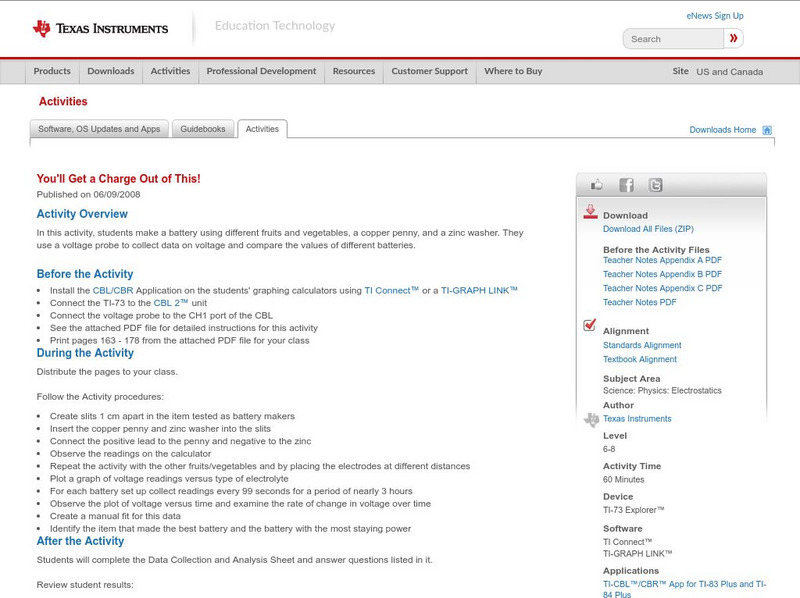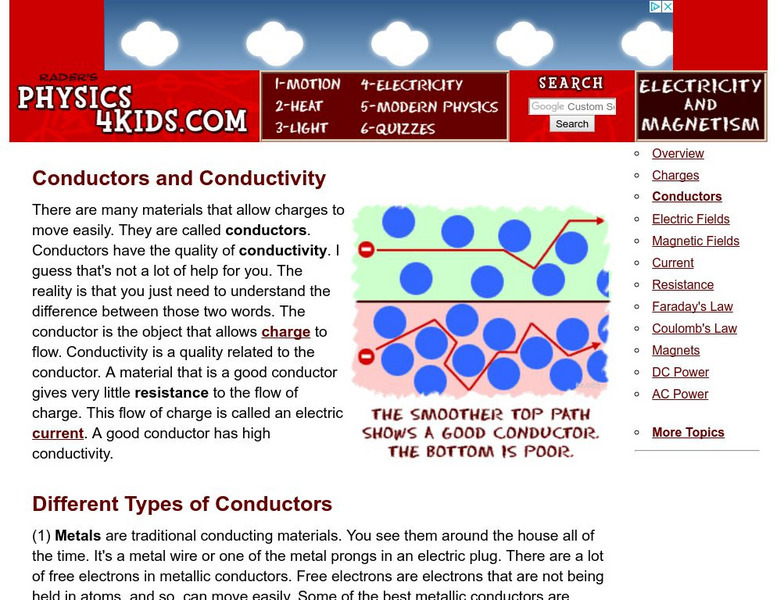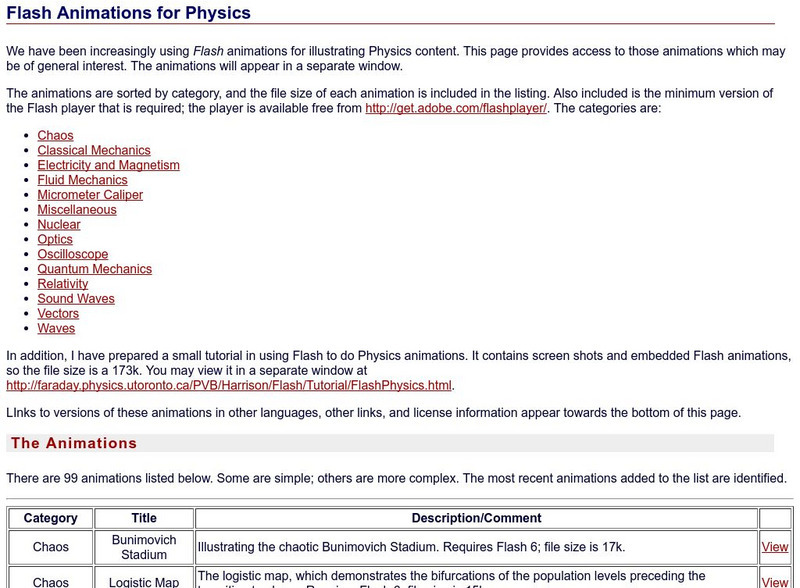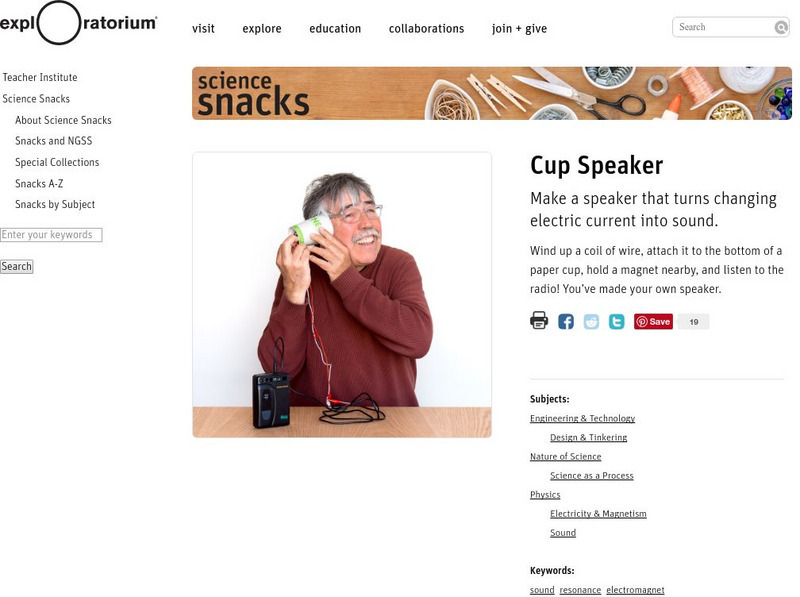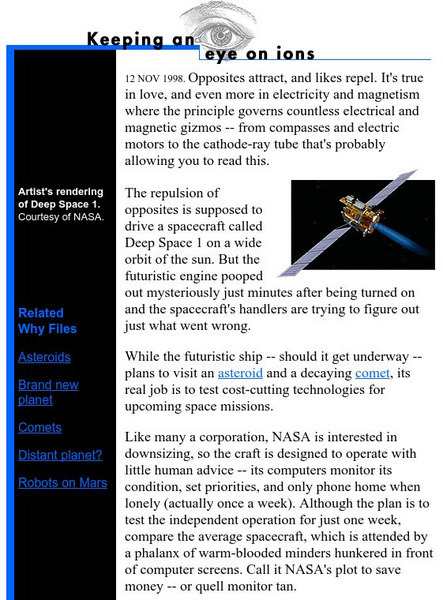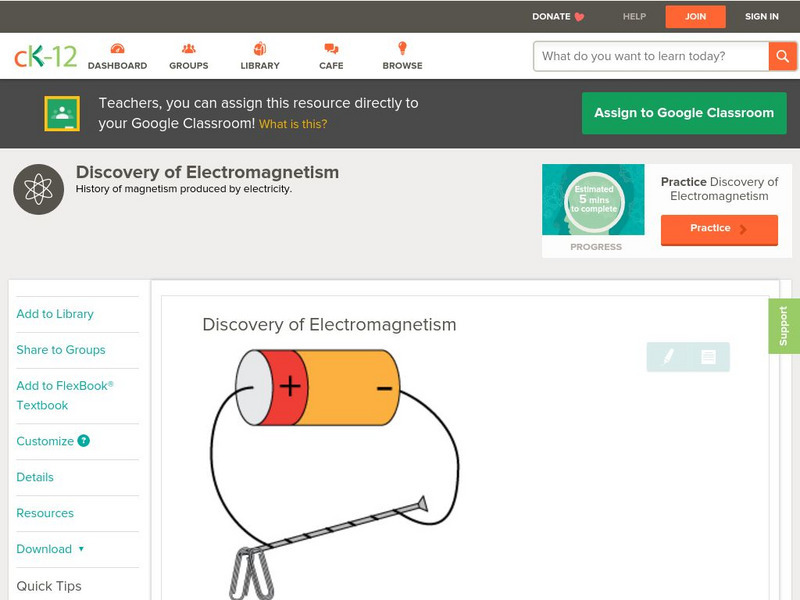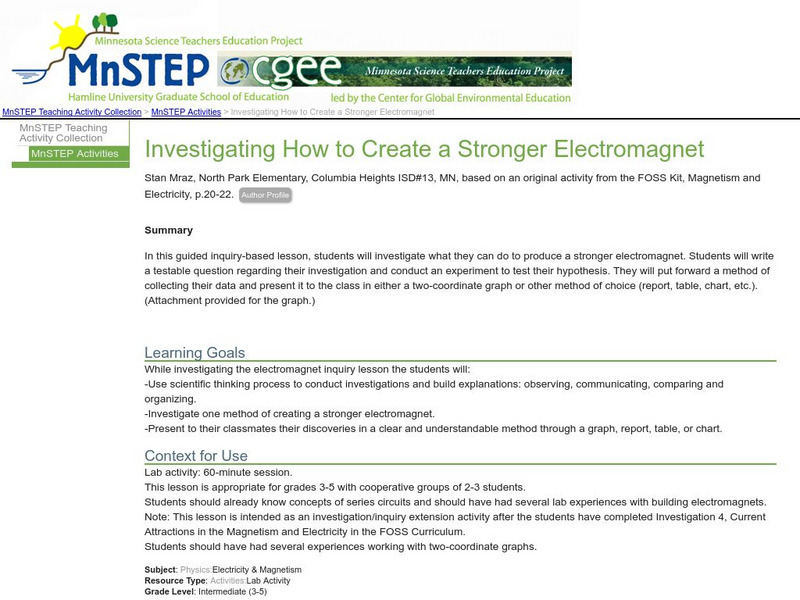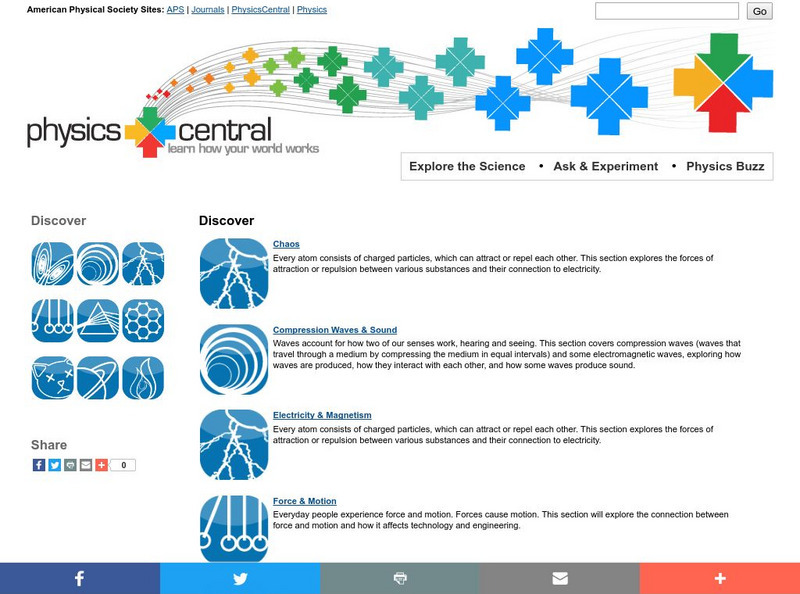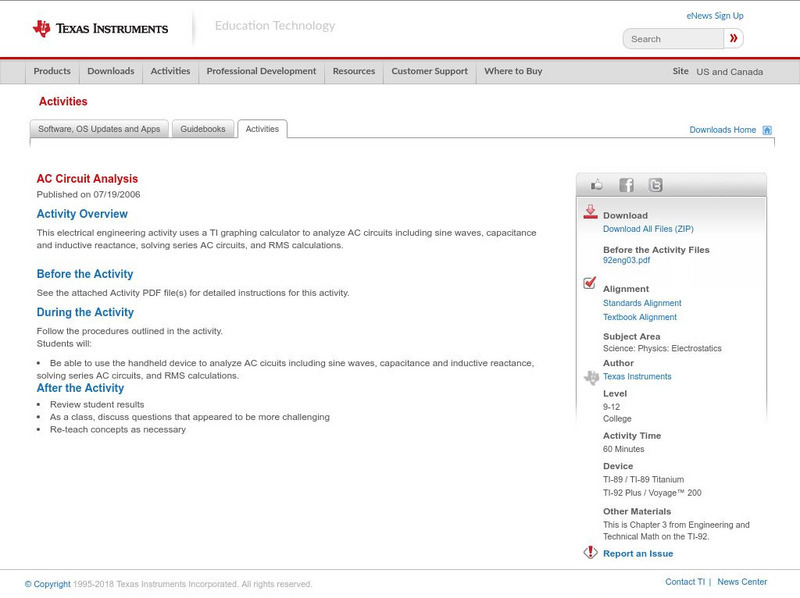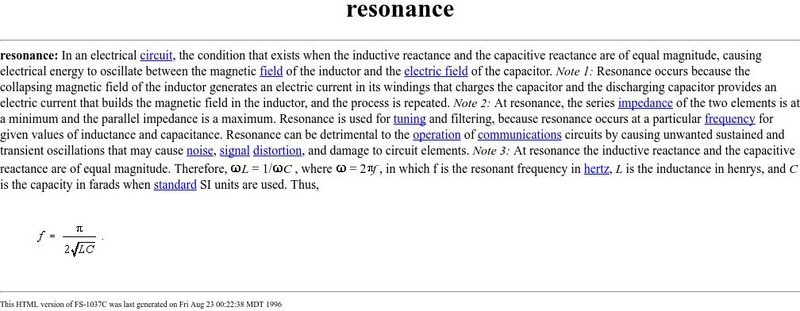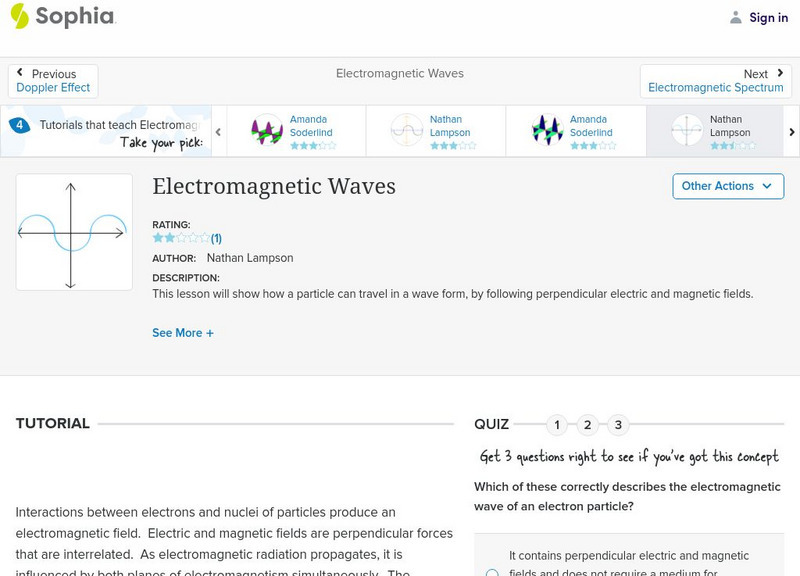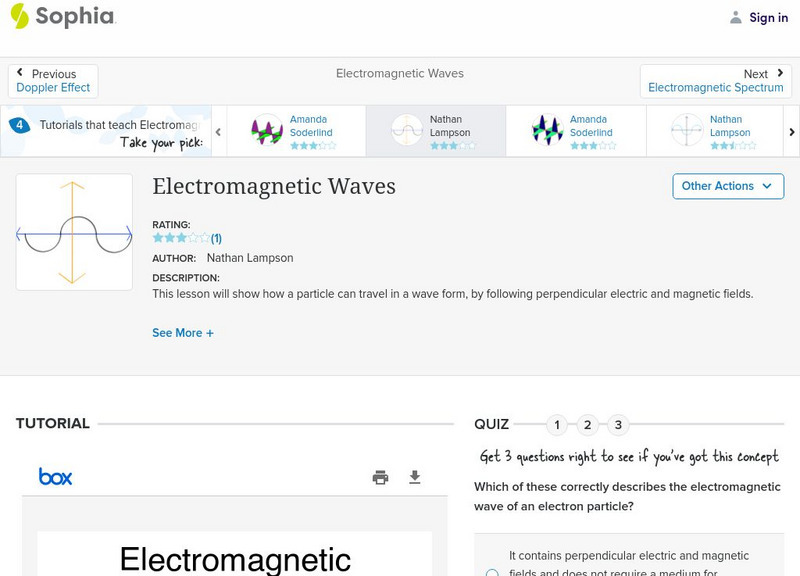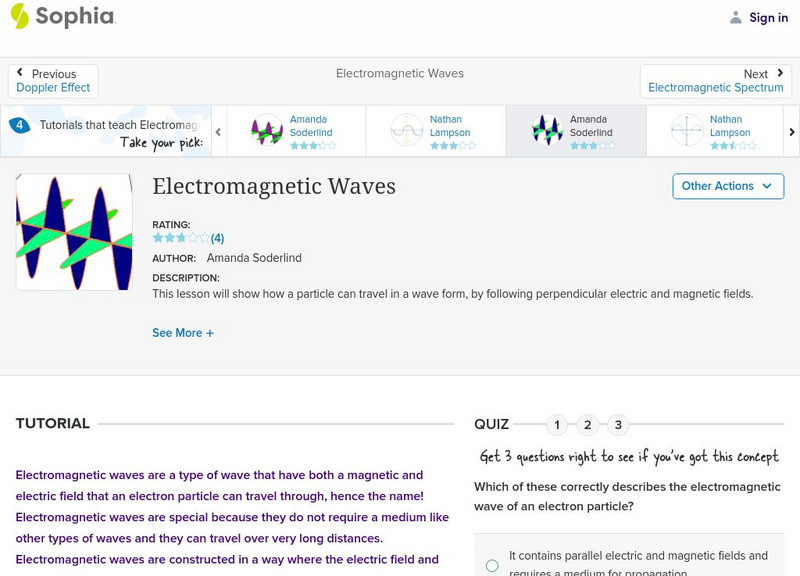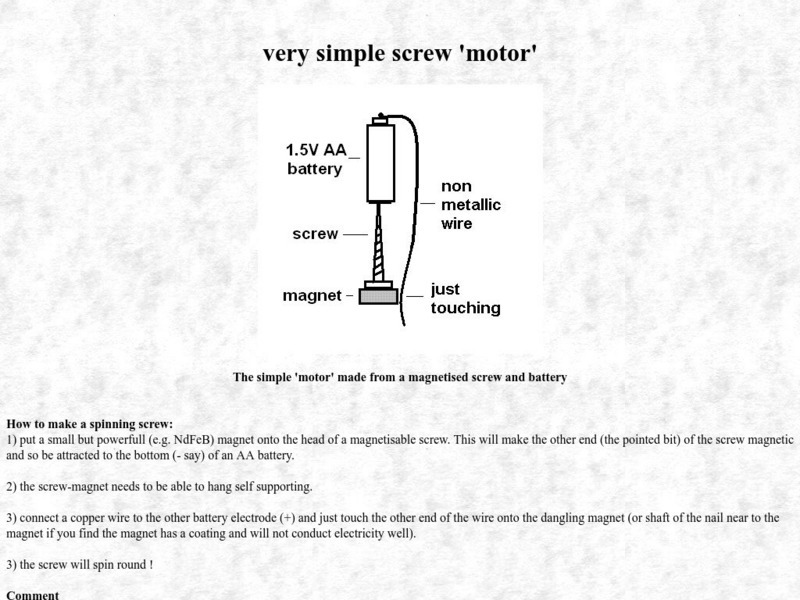Hi, what do you want to do?
Texas Instruments
Texas Instruments: You'll Get a Charge Out of This!
In this activity, students make a battery using different fruits and vegetables, a copper penny, and a zinc washer. They use a voltage probe to collect data on voltage and compare the values of different batteries.
Physics4kids
Physics4 Kids: Electricity and Magnetism: Conductors and Conductivity
A brief overview of several type of conductors.
University of Toronto (Canada)
University of Toronto: Flash Animations for Physics
This site boasts an extensive list of physics animations that cover topics such as electricity, magnetism, quantum mechanics, and relativity. Variables can be manipulated for each demonstration.
Exploratorium
Exploratorium: Science Snacks: Cup Speaker
This activity will have students creating their own speaker with a paper cup, coil of wire, and magnet. The speaker operates by changing electric current into sound.
Channel 4 Learning
4 L: Science Essentials: Get Physical
Find a review of many aspects of the physical world. Simple explanations of electricity, gravity, and the solar system. Included are materials for teachers to use for enrichment.
University of Wisconsin
The Why Files: Keeping an Eye on Ions
Discusses the development of a new rocket engine that operates by the ion propulsion as opposed to gas propulsion. Well written and great graphics!
CK-12 Foundation
Ck 12: Physical Science: Discovery of Electromagnetism
[Free Registration/Login may be required to access all resource tools.] Covers the discovery of electromagnetism, how it relates to electricity, and Faraday's law.
Science Education Resource Center at Carleton College
Serc: Investigating How to Create a Stronger Electromagnet
In this lesson, students will investigate what they can do to produce a stronger electromagnet. Students will use the scientific thinking process to conduct investigations and build explanations. They will present their discoveries to...
Famous Scientists
Famous Scientists: Charles Augustin De Coulomb
A short biography about Charles Coulomb, known for developing Coulomb's law, the definition of the electrostatic force of attraction and repulsion.
Physics Central
American Physical Society: Physics Central: Discover Homepage
Link to nine major physics topics and dig deeper into the content. Find out about the work of scientists in each field and see example physical science experiments.
Texas Instruments
Texas Instruments: Ac Circuit Analysis
This electrical engineering activity uses a TI graphing calculator to analyze AC circuits including sine waves, capacitance and inductive reactance, solving series AC circuits, and RMS calculations.
Physics Classroom
The Physics Classroom: Newton's First Law of Motion
A clear explanation of Newton's First Law of Motion, the law of inertia, with diagrams and real-world examples. Useful for both students and teachers. Written by a high school physics teacher.
CK-12 Foundation
Ck 12: Physical Science for Middle School
This digital textbook covers core physical science concepts and includes interactive features, real world examples, and videos.
University of Glasgow
University of Glasgow: Kelvin Collection
This collection provides links to a variety of information about William Thomson (Lord) Calvin including rare books and an in-depth biography on the life and works of Lord Kelvin. Read about his childhood and education, his many...
Other
Institute for Telecommunication Sciences: Resonance
This site contains a straightforward definition of resonance in an electrical circuit.
Sophia Learning
Sophia: Electromagnetism
This lesson will explain the relationship between electricity and magnetism.
Sophia Learning
Sophia: Electromagnetic Waves: Lesson 2
This lesson will show how a particle can travel in a wave form, by following perpendicular electric and magnetic fields. It is 2 of 4 in the series titled "Electromagnetic Waves."
Sophia Learning
Sophia: Electromagnetic Waves: Lesson 3
This lesson will show how a particle can travel in a wave form, by following perpendicular electric and magnetic fields. It is 3 of 4 in the series titled "Electromagnetic Waves."
Sophia Learning
Sophia: Electromagnetic Waves: Lesson 4
This lesson will show how a particle can travel in a wave form, by following perpendicular electric and magnetic fields. It is 4 of 4 in the series titled "Electromagnetic Waves."
PBS
American Experience: Technology Timeline: 1752 1990
Short descriptions of important technological innovations produced in America and the date of their introduction.
Concord Consortium
The Concord Consortium: Molecular Workbench: Lorentz Force 3 D
Adjust the magnetic field intensity and the particle speed in this simulation to observe the affect the movement of the particle.
Cosmo Learning
Cosmo Learning: Faraday's Law
A collection of video lectures covering the topic of Faraday's law taught at East Los Angeles College. In ten lectures, discover how a magnetic field interacts with an electric circuit to produce an electromotive force. Lectures vary in...
Creative Science Centre
Creative Science Centre: Very Simple Screw 'Motor'
Explains the design of a simple 'motor' made from a magnetized screw and a battery.
Other
Alternating Current Series Circuit
This site outlines a lab dealing with Alternating Current Series Circuit. It includes graphs and formulas, and a list of questions associated with the lab.





